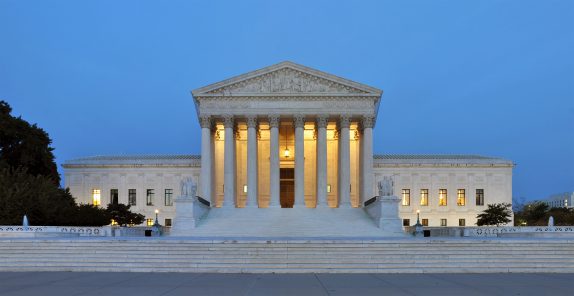On June 3, 2019, the United States Supreme Court unanimously held that the charge-filing requirement of Title VII of the Civil Rights Act of 1964, requiring a complainant to first file a charge with the U.S. Equal Employment Opportunity Commission (EEOC) before commencing a Title VII action in court, is not jurisdictional. Fort Bend County, Texas v. Davis, 587 U.S. ___ (2019). The Court held that although the charge-filing requirement is a mandatory claims-processing rule that must be enforced if properly raised, objections based on such rule may be waived if not timely raised.
Respondent Davis initially filed an EEOC charge against Fort Bend County alleging sexual harassment and retaliation. Davis later attempted to supplement her allegations to include religion but failed to amend her formal charge document. Davis filed suit in the United States District Court for the Southern District of Texas, alleging discrimination based on religion and retaliation for reporting sexual harassment. Fort Bend succeeded on its motion for summary judgment. The Fifth Circuit Court of Appeals reversed the District Court’s ruling as to Davis’ religious discrimination claim. Upon return to the District Court, Fort Bend argued for the first time that the court lacked jurisdiction to adjudicate Davis’ religious discrimination claim because it had not been stated in her EEOC charge. The District Court granted Fort Bend’s motion to dismiss. The Fifth Circuit reversed, holding Title VII’s charge-filing requirement was not jurisdictional and finding Fort Bend had forfeited the defense. The Supreme Court ultimately affirmed the Fifth Circuit, holding the charge-filing requirement is not jurisdictional.
The Supreme Court’s ruling makes clear that while an employer may defend against a discrimination suit based on a worker’s failure to satisfy the charge-filing prerequisite, the failure to timely bring such a defense may result in waiver. Although the Court did not set forth a specific time-frame within which employers should assert the failure to exhaust defense to avoid waiver, employers should assert the defense as early in the proceedings as possible.
A copy of the Court’s slip opinion can be found here.
– Keesal, Young & Logan Employment Group
This information has been prepared by Keesal, Young & Logan for informational purposes only and is not legal advice. Transmission of the information is not intended to create, and receipt does not constitute, an attorney-client relationship between you and Keesal, Young & Logan. You should not act upon this information without seeking professional counsel.
